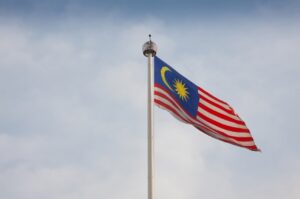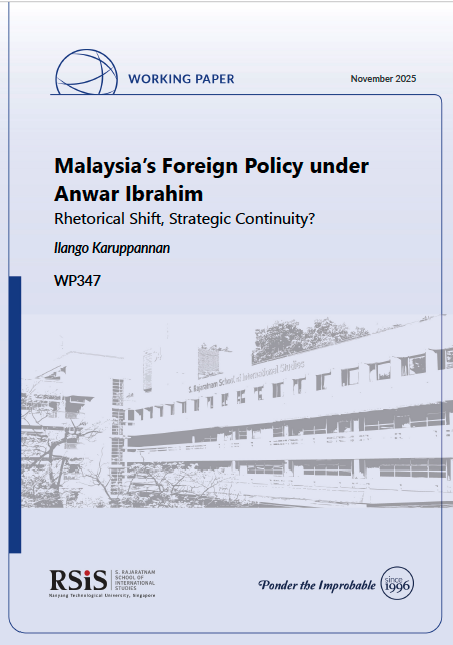25 November 2025
- RSIS
- Publication
- RSIS Publications
- Malaysia’s Foreign Policy under Anwar Ibrahim: Rhetorical Shift, Strategic Continuity?
Abstract
Anwar Ibrahim’s return to power in 2022 raised expectations of a bold new foreign policy for Malaysia. The core orientations of its diplomacy – regional partnerships, trade promotion, and engagement with the Islamic world within a moderate, non-aligned identity – remained intact, but Anwar infused them with sharper moral signalling and greater rhetorical ambition. Nearly three years into his administration, this paper assesses how those aspirations have unfolded. It argues that while Anwar has advanced more assertive rhetoric – defending Palestinian rights, promoting engagement with the Global South, and criticising Western double standards – structural constraints have limited the scope of change. Economic interdependence, institutional inertia, and the complexities of regional diplomacy have tempered his disruptive instincts, leaving Malaysia’s external posture largely consistent with past practice: anchored in ASEAN, reliant on strategic hedging, and cautious in execution. Across the arenas examined – neighbourhood diplomacy, crisis management in Southeast Asia, Global South strategy, the Middle East dilemma, and managing major-power competition – the same pattern recurs. Anwar’s foreign policy is best understood not as rupture but as recalibration: a change in tone rather than orientation; an ambition bounded by structural realities. Neighbourhood diplomacy refers to how a state manages its political, economic, and security relations with its immediate geographic neighbours.

Abstract
Anwar Ibrahim’s return to power in 2022 raised expectations of a bold new foreign policy for Malaysia. The core orientations of its diplomacy – regional partnerships, trade promotion, and engagement with the Islamic world within a moderate, non-aligned identity – remained intact, but Anwar infused them with sharper moral signalling and greater rhetorical ambition. Nearly three years into his administration, this paper assesses how those aspirations have unfolded. It argues that while Anwar has advanced more assertive rhetoric – defending Palestinian rights, promoting engagement with the Global South, and criticising Western double standards – structural constraints have limited the scope of change. Economic interdependence, institutional inertia, and the complexities of regional diplomacy have tempered his disruptive instincts, leaving Malaysia’s external posture largely consistent with past practice: anchored in ASEAN, reliant on strategic hedging, and cautious in execution. Across the arenas examined – neighbourhood diplomacy, crisis management in Southeast Asia, Global South strategy, the Middle East dilemma, and managing major-power competition – the same pattern recurs. Anwar’s foreign policy is best understood not as rupture but as recalibration: a change in tone rather than orientation; an ambition bounded by structural realities. Neighbourhood diplomacy refers to how a state manages its political, economic, and security relations with its immediate geographic neighbours.






